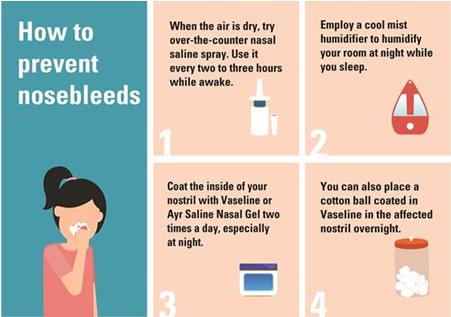Physical Address
304 North Cardinal St.
Dorchester Center, MA 02124
Physical Address
304 North Cardinal St.
Dorchester Center, MA 02124

Contents
A nosebleed, also known as epistaxis, is a common occurrence where there is a loss of blood from the tissue lining the nose. It typically happens from one nostril only and can be caused by various factors such as trauma, dryness of the nasal lining, allergies, colds, sinusitis, or nasal obstruction. The nose is a highly vascular area with delicate blood vessels that can easily bleed, especially in dry or heated indoor air conditions, which are more prevalent in the winter months.
Most nosebleeds originate from the septum, the cartilage that divides the nasal chambers and is lined with fragile blood vessels. While most nosebleeds are not serious and can be stopped with simple measures, it is essential to seek medical attention if the bleeding persists, recurs frequently, or is accompanied by other concerning symptoms.
Nosebleeds can be triggered by a variety of factors, including:
It is crucial to identify the underlying cause of recurrent nosebleeds to determine the appropriate treatment and preventive measures.
When experiencing a nosebleed, it is recommended to:
Preventive measures to reduce the risk of frequent nosebleeds include keeping the home environment cool, using a vaporizer to add moisture to the air, and using nasal saline spray to prevent nasal dryness, especially during the winter months.
While most nosebleeds can be managed at home, it is essential to contact a medical professional if:
Medical evaluation may involve a physical examination, blood tests, imaging studies, and specialized treatment based on the cause of the nosebleed. In some cases, referral to an ear, nose, and throat specialist may be necessary for further evaluation and management.
Nosebleeds are a common occurrence that can be triggered by various factors, including environmental conditions, underlying medical conditions, or nasal trauma. While most nosebleeds are not life-threatening and can be managed at home, persistent or recurrent episodes warrant medical attention to determine the underlying cause and appropriate treatment. By understanding the causes, symptoms, and preventive measures for nosebleeds, individuals can effectively manage and reduce the risk of experiencing this common condition.